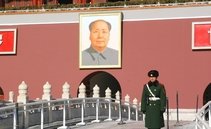The 2024 Third Plenum ended with a resolution on how China will tackle its many economic challenges.

While the rest of the world looks worried at the recent developments in the 2024 US presidential elections, China established a grand strategy for its economic future. Last week, the twice-in-a-decade “Third Plenum” saw China’s top-level officials gather to decide on the country’s many economic challenges.
The assembly made up of over 400 members of the Chinese Communist Party was presided by China’s President Xi Jinping in Beijing. Xi gained in 2022 an unprecedented third term as the country’s leader, with observers claiming he’s the most powerful Chinese President since Mao Zedong.
Third plenums usually usher in sweeping economic reforms to bring China forward. This one, however, was slightly more cautious, focusing on solving the many issues gripping the world’s second-largest economy.
China is currently undergoing its worst real estate crisis in history, with most of its major property developers going bankrupt. The government has been adamant that speculative firms should fail and will not be bailed out by Beijing.
The crisis, however, is depressing Chinese consumer confidence, with domestic demand at historic lows. Deflation is running rampant, with the People’s Bank of China decreasing some key interest rates to artificially boost prices. The PBOC cut the 5-year, 1-year, and medium-term loan rates by 10 basis points, “strengthening counter-cyclical adjustments to better support the real economy,” the bank said in a statement.
leggi anche
A job crisis is shaking China

Future plans
On Sunday, the CCP posted the Third Plenum’s final resolution, detailing some of the general plans the party wants to implement in the near future.
First, the party wants to tackle the enormous $10 trillion debt pile currently pushing on local administration. The resolution details a plan to give a larger share of government taxes to local municipalities, especially consumption taxes.
With this move, Xi effectively reversed a resolution taken in 1994, when the Third Plenum diverted more tax revenues to the central government.
Local governments will also have more autonomy to regulate property markets in a blow to giant private developers. The PBOC already laid out a relief plan for local authorities to buy back some unsold properties and convert them into community housing.
Although much more needs to be done to solve China’s $4 trillion real estate hole, this is a step in the right direction. Developers like Evergrande and Country Garden made a fortune building empty towns with hundreds of unsold properties, leaving the burden to local governments. These properties, often built solely for price speculation purposes, artificially raised prices in regions far from the coast, where household income is much lower.
The 2024 Third Plenum was not one of sweeping reforms but of self-reflection and change. China wants to take a “slow and steady” approach to its economic rebound.




